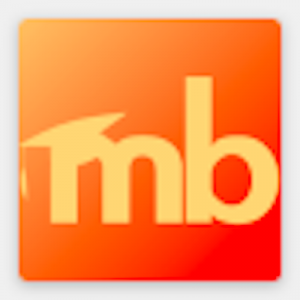MoodleBites from HRDNZ Moodle Partner since 2006
MoodleBites for Teachers
Updated for 2022 - for Moodle 3.11
What do others say having taken this course...
"Thanks for the great online learning experience HRDNZ!" Sheryl Villaroman, Philippines.
"...new learning, insights, practice and sharing; great course! It was great, even for me in second language," Sylvester Garcia, Peru.
"I am new to Moodle and for someone whose background in IT is pretty weak, I am very proud of the knowledge that I have acquired from this course. Thank you." (Anonymous feedback), USA.
"Just wanted to say thanks ... it's been a genuinely interesting course." Charles Burkinshaw GAC, UK.
"The mentoring aspect was just great, and the support in the forums was amazing, from peers and mentors. I am now a much more confident and inspired Moodler." (Anonymous feedback), UK.
- New HD (high-definition) screen capture movie tutorials
- Automated 'Certification of Completion' at the end from HRDNZ (Moodle Partner)
- Improved and faster course graphics
- Updated .pdf resources
- Streamlined Forums and communication
- Teachers Practice area - safe area for experimenting and collaboration
- More Quizzes and more self-test questions
- All standard Activities and Resource types covered
- Facilitators are all MCCC/MEC qualified (official Moodle Certificate)
- Facilitators are experienced online teachers from schools, universities, and the commercial sector
- Open Badges awarded

![]()
The MoodleBites for Teachers course is 8 weeks in duration and is delivered in a current Moodle environment (resources are also available within courses for earlier Moodle versions). Each week contains approximately 2-4 hours work, although this varies depending on your experience with Moodle and how much extension work you wish to complete
Designed for 'just in time' training, for busy teachers needing flexibility, and those new to Moodle.
- Each week is facilitated by Stuart Mealor (Managing Director of HRDNZ (Moodle Partner), PHM, and co-facilitated by at least one other MEC/MCCC and experienced internationally recognised Moodler
 |
Anna Krassa Greece Greek / English |
|---|---|
 |
Jean-Marc Doucet France French / English |
 |
Maryel Mendiola Mexico Spanish |
 |
Stuart Mealor New Zealand English |
Fees
MoodleBites is US$249 per person at this time we are able to offer a discount to a special rate of USD $199 but places are limited - so book early to avoid disappointment. If you wish to translate this value to your local currency please visit: http://www.xe.com/ All invoices outside of New Zealand are in US Dollars USD$ (Euro invoices available by special request). You can register for the course using the "Register Now" link on the Front Page.
Dates
The MoodleBites for Teachers course runs 5 times each year starting on the following dates;- 1st February
- 1st April
- 1st June
- 1st August
- 1st October
In covering the content, each course includes:
- Printable reference material
- Multimedia (flash) tutorials
- Forums and chat sessions
- Practical teaching examples
- FAQ's and glossaries
- Individual practice exercises
- MEC knowledge linked glossary
- Optional group activities
- Tips and tricks
- "Watch out for..." the things we get wrong
- Selected relevant links
- Quizzes
- Recommended further reading
- Mobile friendly course design
MoodleBites is unique in a number of respects:
- It has a focus on how to use Moodle features in teaching.
- Throughout the course indicators are provided to the Moodle Educator Certificate (MEC) Skills Sets - so the course is ideal for MEC candidates.
- The course development team is international and MoodleBites has been written to be accessible for speakers of English as a second or other language.
- Designed to run well even over slow internet connections and on older computers.
- Any audio content is replicated in text for improved accessibility.
Course content outline
- Week 0 - Understanding Moodle FREE
This is a free course we created to help explain Moodle in 'context'; as a piece of technology, as a philosophy, and as a teachers tool.
- This is a prerequisite self-paced course that can be taken at any time before starting the full MoodleBites course
- Moodle history and development
- Moodle fundamentals
- Comparing Moodle with other Course Management Systems
- Week 1, Setting up your first Moodle course
Setting up a Moodle course is not just about the choices you make for which functions and options are available, but is also about how the learners start the course. This is a critical moment with great impact on the subsequent success of the course.
- First steps for learners and Student profiles
- The editor
- Blogs
- Forums
- Understanding browsers
- Week 2, Adding Resources and using Blocks
The building blocks of a Moodle course are often the labels, pages and static content representing the learning material. This section looks at how to best create and present this information.
- Labels, Pages, Files, Folders, URL's
- Using and configuring blocks effectively
- Course Administration
- Using the Calendar
- Messaging
- Week 3, Using Moodle Activities (part 1)
In this topic we explore two of the most critical tools used for assessment of learning in Moodle - Assignments and Quizzes, and begin to understand the Gradebook basics.
- Assignments
- Scales
- Quizzes
- H5P
- Introducing the Gradebook
- Week 4, Using Moodle Activities (part 2)
Moodle has numerous activities that can be quickly and easily added to a course to make content more interactive and participant driven.
- Comments
- Survey
- Choice
- Glossary
- Chat
- LTI
- Week 5, Using Moodle Activities (part 3)
Lessons are perhaps one of the most under-utilised activities within Moodle, partly due to the steep initial learning curve, and somewhat unintuitive interface. This topic also looks at the Database activity which is very powerful indeed. This week also revisits the Gradebook.
- Book
- Lesson
- Coparing the Book and Lesson
- Database
- The Gradebook revisited
- Week 6, Using Moodle Activities (part 4)
The Workshop module provides a peer-assessment tool within Moodle courses, and the Wiki provides opportunities for learners to collaboratively create content. RSS is a technology enabling you to pull news stories from others sites into your course, or push forum posts for example out. We also look at the Feedback activity and using Moodle via mobile devices this week.
- Workshop
- Wiki
- RSS
- Feedback
- Conditional activities
- Badges
- Week 7, Coursemanagement
Using Moodle as an effective learning environment requires more than just writing good content. Actively and skillfully managing learners and courses is a vital teacher skill.
- Dashboard and Help
- Roles, Groups, and Groupings
- File management
- Reports, Logs, Event monitoring
- Analytics
- Moodle and mobile
- Week 8, Multimedia in Moodle
In the world of camera-phones, iPods, and YouTube multimedia is often used to provide a more engaging experience for learners. Understanding and applying some basic multimedia knowledge and skills can transform courses from being mundane to being highly motivating.- Images
- Audio
- Video
- HTML5 and H5P
*This outline is subject to change as Moodle changes and we update the content.
